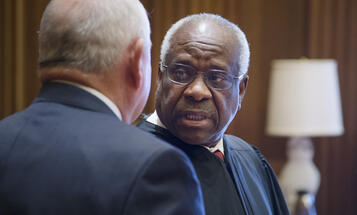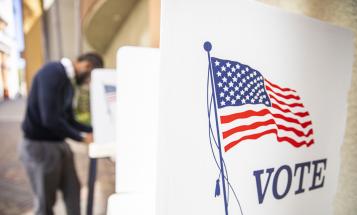
Cantor Loss Speaks to Outrage Over Big Money Politics
House Majority Leader Eric Cantor lost big yesterday to Tea Party candidate Dave Brat in his Virginia Republican primary. Cantor severely outspent his opponent (about 25-to-1), so some will point to this as an example of how campaign money doesn't matter.
Thankfully, it's true that big spenders don't always win the day. The race is a classic example of how voters should stay engaged in spite of an onslaught of spending because it's still possible to buck the big-spending trend. When an incumbent's in-district approval rating is only 30% (with 63% disapproval), not even a multi-million dollar advantage can protect the status quo every time.
But, the trend of the biggest-spending candidates winning the day remains powerful and the overwhelming rule rather than the narrow exception (as yesterday's race in fact was). Between 2000 and 2010, 93% of the biggest spenders won House races.
And, there is another angle that many will overlook. As David Donnelly and Adam Smith of Public Campaign pointed out in this memo, and Lee Fang points out in the Republic Report, big money politics was a consistent campaign theme for Brat. As much as any other issue, Brat mobilized voters by railing against a Congress captured by Wall Street and Rep. Cantor's role in watering down ethics reform.
And, Cantor played right into this theme—with his campaign spending more money on fundraisers at steakhouses than Brat spent overall.
This election showed that voters can buck the big money trend--especially when big money politics becomes a central theme of a campaign. But, that's all. Anyone arguing it proves money is no big deal is missing the larger trend, and ignoring key aspects of the race.



